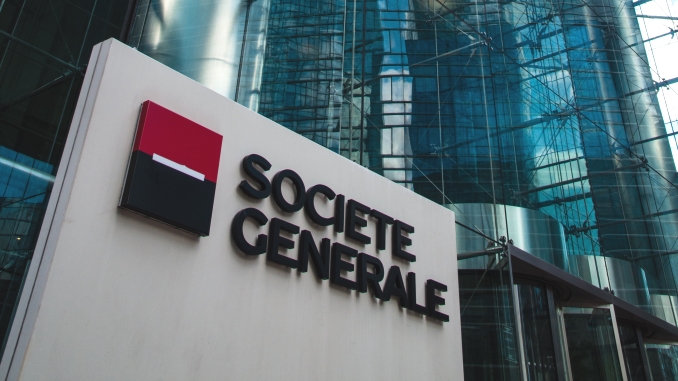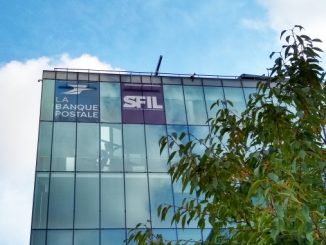
Société Générale SFH issued the first French green covered bond last Monday, a EUR1bn 10 year issue that attracted over EUR2.5bn of orders, with proceeds earmarked for refinancing mortgages against low carbon residential buildings in the fifth “positive impact” bond from the group.
The proceeds of the covered bond are earmarked for refinancing new residential buildings belonging to the 15% most carbon-efficient properties in France. To define the eligibility criteria, SG worked with green real estate consultant Wild Trees, and buildings will further be required to be aligned with Climate Bond Initiative standards for low carbon residential properties.
In line with some previous green covered bonds, SG’s methodology uses construction year as a proxy for energy performance. According to the French building code, since beginning of 2013 residential buildings have had to comply with a rule that ensures they will achieve an Energy Performance Certificate of level A or B. As of 1 January 2019, such properties represent approximately 7.1% of the French mainland building stock, allowing them to be deemed among the top 15% carbon-efficient buildings from a greenhouse gas emissions perspective, according to Wild Trees. The eligible portfolio stood at EUR2.987m, as of 31 May, comprising 21,237 loans.
Many investors have called for issuers to report on how their programmes relate to the SDGs, and SG cites SDGs 7 and 13 – Affordable & Clean Energy and Climate Action – as those its issuance will contribute towards.
SG was also a founding member of the UN Environment Programme Finance Initiative (UNEP FI) Positive Impact Finance Initiative and flagged that its programme is aligned with the UNEP FI’s Principles for Positive Impact Finance, with the covered bond also targeting SDGs 7 and 13.
“Conscious of the environmental issues that society faces, the group is committed to the energy transition and the support of Positive Impact projects,” said Philippe Aymerich, deputy CEO in charge of French retail banking activities and group resources. “We continue to pursue a voluntary and responsible policy to the financing of a carbon-efficient and sustainable economy.
“Société Générale is a key actor in real estate financing in France and this project is in line with our vision for sustainable cities supported by the group.”
The framework received a second party opinion from Vigeo-Eiris, which confirmed its environmental credentials and alignment with the Green Bond Principles and the Principles for Positive Impact Finance.
“We express a reasonable assurance (our highest level of assurance) on the issuer’s commitments and the bond’s contribution to sustainable development,” it said.
Plans for the inaugural deal from SG’s covered bond issuer were announced the Monday before launch (1 July) and a roadshow followed from the Wednesday. A syndicate banker at one of the leads said that, thanks to SG’s previous issuance, its framework was already familiar to many investors.
“It has all the green stamps and as long as the company has a sufficiently acceptable ESG strategy – as SG does – you can call it what you want,” he added.
After completing its roadshow, SG teed up its debut at the end of the preceding week by announcing plans for a 10 year euro benchmark, to be launched as early as the Monday. Its announcement came as compatriot Crédit Mutuel Arkéa was issuing a strongEUR500m deal in the same maturity.
“On the back of Arkéa, we knew there would be demand,” said the lead banker. “Add to that the fact that this is also a green bond, and it is absolutely the sort of trade we knew would go well.”
On the Monday morning (8 July), leads ABN Amro, Commerzbank, Danske, ING, SG and UniCredit opened books with guidance of the mid-swaps plus 8bp area for a euro benchmark-sized 10 year. The books were above EUR1.5bn after around an hour and three quarters, and after close to three hours guidance was revised to 5bp+/-1bp, WPIR, on the back of more than EUR2.3bn of demand. The deal was ultimately priced at 4bp over and sized at EUR1bn on the back of close to EUR2.5bn of orders good at re-offer, including EUR70m joint lead manager interest.
SG SFH’s outstanding January 2028 was quoted at 2.5bp, mid, according to pre-announcement comparables circulated by the leads, and bankers at and away from the leads said the new issue came roughly flat to fair value. The outcome was deemed a strong result, with bankers noting the deal was helped by favourable underlying market conditions as well as the green nature of the bond.
“When markets are as strong as they are today, you can do pretty much anything,” said the lead banker. “But the green element maybe was a bit of a help in giving us some additional firepower to be as aggressive as we were with the pricing – and it never works against you.”
Although SG’s latest deal is the first French green covered bond, a variety of sustainable bonds have been issued by French banks, and more covered bonds are expected to follow. In February, Caffil – the covered bond issuer of SFIL – sold the first French covered bond in either green or social format, a EUR1bn deal with proceeds earmarked for refinancing public sector assets in the healthcare sector, and the group is working on a green bond framework. La Banque Postale in April inaugurated a green, social and sustainability bond framework with a senior non-preferred issue, and it can also issue covered bonds under its framework.
SG has issued four previous positive impact bonds: two unsecured bonds of EUR500m in 2015 and 2016, a Taiwanese issue in 2018, and a EUR500m deal in 2018 from ALD, a SG car leasing subsidiary.



